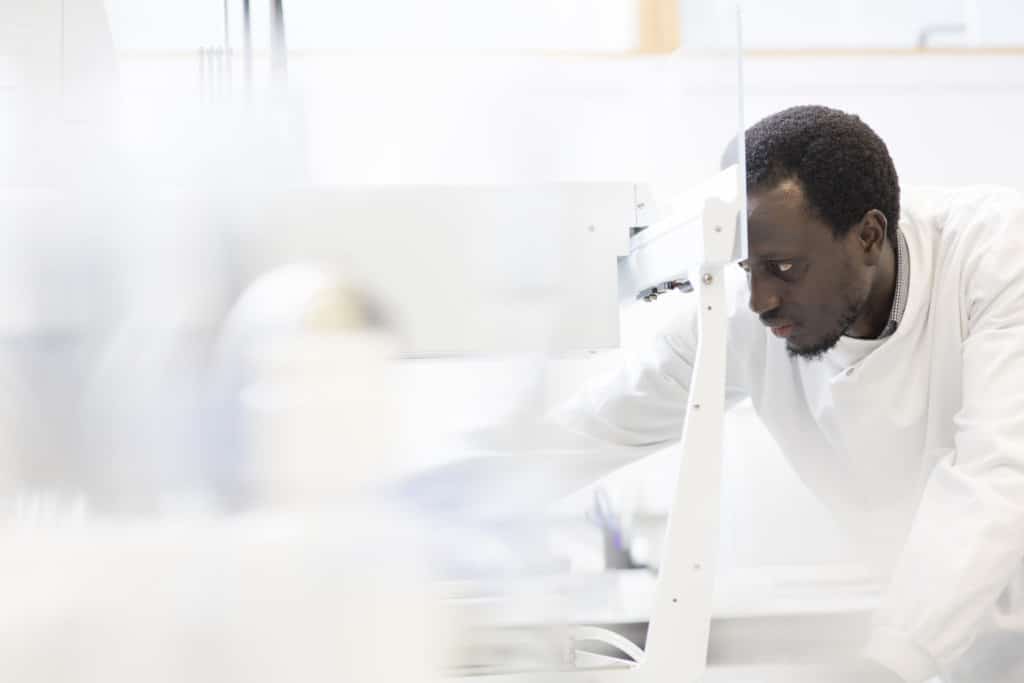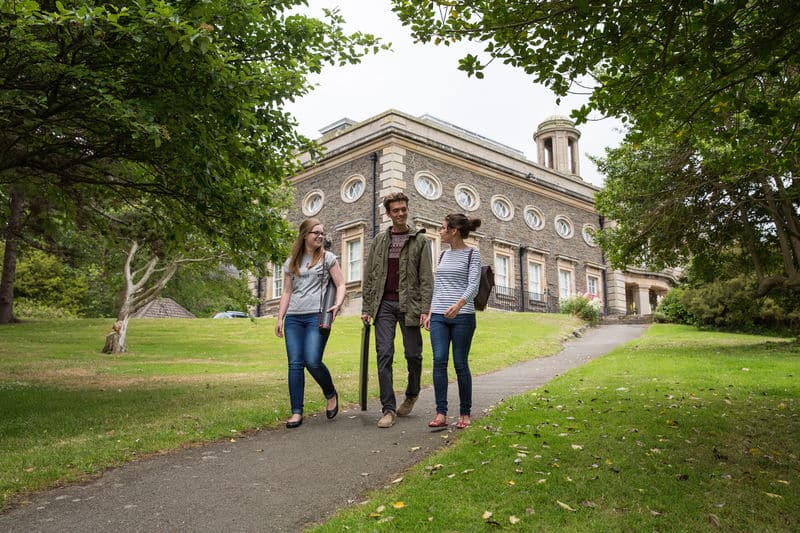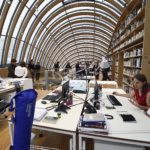Growing up, Daniel Thompson never thought of studying chemistry. None of his family studied science and he never thought of carving a career in compounds and elements.
A broken leg and a lot of time off in his fifth year at school changed his mind. He was helping a friend with his higher chemistry exams then and found himself liking the subject — so much so that he took night classes to convince his school to let him study chemistry during his final year.
After completing his Higher National Diploma (HND), he joined the second year of the University of Aberdeen’s Chemistry, BSc and a year later, the Master of Chemistry (MChem).
It’s been a journey filled with “a huge amount of skills, knowledge and experience.” “You get a very strong development of knowledge of each subject area that is taught at the University of Aberdeen,” says Thompson. “I felt that I was constantly challenged to not only just regurgitate facts, but to learn the information and be able to use the information in order to solve problems.”
Orlagh Fraser, a third-year MChem student, echoes a similar sentiment: “I have gained lots of knowledge about many branches of chemistry, some of which I wasn’t aware of until I started my studies here. The staff are very knowledgeable and provide guidance and support throughout.”

The Department of Chemistry combines research-led teaching with experienced educators to provide a practical learning experience. Source: University of Aberdeen
With over 200 years of teaching and research experience, the Department of Chemistry has established itself as one of the best in the country. It ranked first in Scotland for research impact in the Research Excellence Framework (REF) 2021. Some of their exciting breakthroughs include new discoveries in areas related to medicine, energy, functional materials, catalysis, biomaterials, and the environment.
Led by this, teaching covers the main branches of chemistry at all levels (inorganic, organic, analytical and physical chemistry) in both lectures and practical laboratory sessions — which take place in high-tech facilities.
The Science Teaching Hub, for example, is the newest teaching laboratory in Scotland. A completely paperless environment combines the virtual learning space with live laboratory demonstrations. This lets students have access to the same equipment found in the industry, providing them with invaluable insight and experience.
More impactful still, are the people in these spaces. Friendly and approachable staff practise an open-door policy and pride themselves in nurturing students to reach their full potential. In the National Student Survey 2022, the department ranked fifth in the UK for learning community.
“Lecturers speak to you as if you’re colleagues and you are able to troubleshoot and problem solve with them without feeling like you’re just a first-year student who knows nothing,” Thompson shares.
He experienced this while working on a research project during his fourth year. Given the flexibility to do something different, the MChem student chose to research liquid crystals. This project saw him covering different aspects of chemistry, such as organic synthesis for making liquid crystals, physical chemistry, thermodynamics and quantum chemistry.
The best part? Thompson had the chance to conduct research at the University of Freiburg for his master’s thesis — a venture he describes as rewarding and challenging.
His research project focused on synthesising new sugar amalgams which would be used as chemical substrates for bioassays. In that lab, he was the only chemist.
“I have had to create synthesis plans, including the work up, and decide on what are the appropriate analytical/spectroscopic techniques for the products I want to produce completely from scratch,” he says. “I was learning how to encode genes into bacteria and cloning techniques, while also learning a huge amount on organic synthesis.”
Students have the option of learning other subjects — such as languages, STEM, humanities and business. Employability and entrepreneurship are taught too.
This flexibility, paired with an individualised curriculum and a range of innovative assessments to enhance students’ communication, ensures students are career-ready.
Graduates often find work in a wide range of highly rewarding careers. Ninety percent of graduate students have found employment with 86% of postgraduate students’ careers going in the direction that they had hoped for.
From drug discovery and environmental protection to IT, forensics, food and agriculture, University of Aberdeen students are making their mark in research, industry and academia. Some joined the spin-out companies in pharmaceuticals, fuel cells and biomaterials set up by department staff. This includes TauRx Therapeutics, which has designed a novel drug to treat Alzheimer’s disease.
Thompson is part of a graduate programme with Sanofi, a pharmaceutical company. “I am really excited to start and it will give me invaluable experience in the industry,” he enthuses.
While he’s excited about this future, students like Thompson will miss his time on campus.
The University of Aberdeen is not only ranked fifth in the UK for overall student satisfaction (National Student Survey 2022) and ninth in the UK for Chemistry (The Times and Sunday Times Good University Guide 2023). Its Old Aberdeen Campus is also one of the UK’s Top 10 Most Beautiful Historic campuses, with the Sir Duncan Rice Library named one of the most beautiful in the world (CEOWORLD magazine, 2016).
Facilities are excellent, hosting plenty of events all year round. There’s an Olympic-standard Sports Village and Aquatics Centre, over 100 clubs and societies, a thriving student union and a community of students from over 120 countries. It’s the perfect setting for research, learning and fun.
“There are many different societies, offering a huge array of classes and activities and they’re a great way to fill that downtime,” says MChem student Peter Grant.
Follow University of Aberdeen on YouTube, Twitter, Facebook, Pinterest, Instagram and LinkedIn










